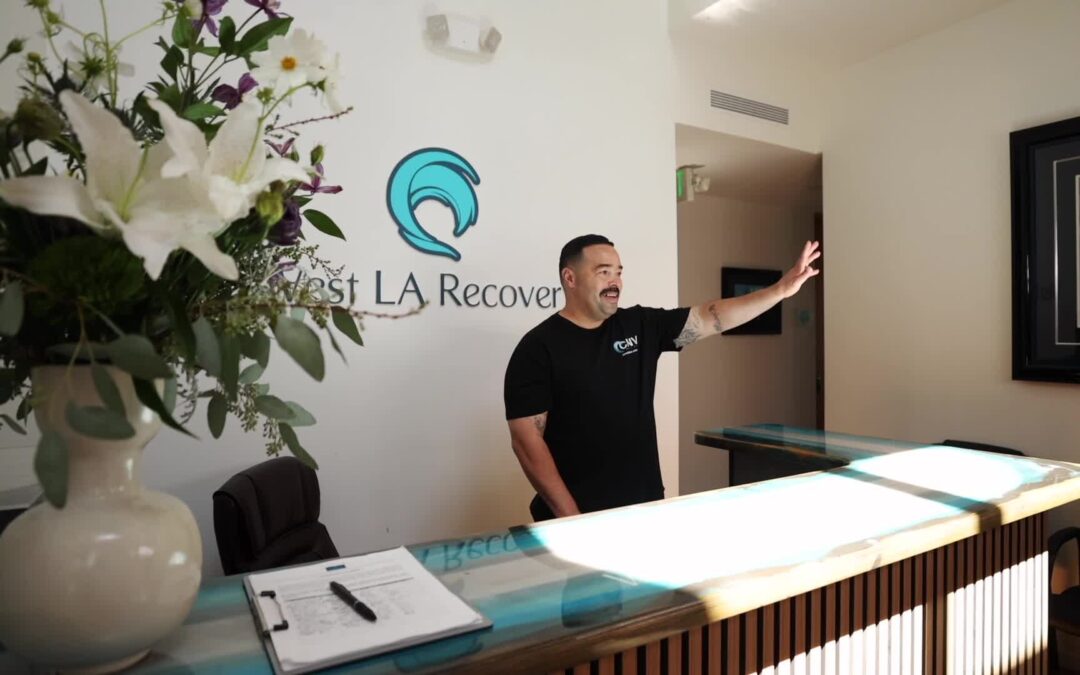Understanding New Year Triggers
The holiday season brings unique challenges for individuals in recovery. Triggers – specific events, emotions, or situations that spark cravings or thoughts of substance use – can intensify during New Year celebrations.
Common New Year Triggers Include:
- Social pressure at parties
- Memories of past substance use during celebrations
- Heightened emotions from year-end reflections
- Family gatherings and associated stress
- Prevalence of alcohol at events
- Feelings of loneliness or isolation
The psychological impact of New Year’s celebrations can be particularly challenging. The societal emphasis on “new beginnings” creates pressure, while the widespread acceptance of substance use during celebrations can make you feel isolated in your recovery journey.
External triggers might include seeing others drink at parties, champagne toasts, or holiday-themed advertisements. These visual cues can activate memories and cravings linked to past substance use.
Emotional triggers often stem from:
- Stress about the upcoming year
- Anxiety about social situations
- Pressure to participate in traditional celebrations
- Reflection on past behaviors or relationships
Understanding your personal triggers is crucial for maintaining sobriety during this period. By identifying these potential challenges early, you can develop effective strategies to navigate the New Year while protecting your recovery journey.
Challenges of New Year’s Resolutions for Sobriety
Research shows that 80% of New Year’s resolutions fail by February, with sobriety goals facing unique hurdles. Setting a sobriety date on January 1st can create unnecessary pressure and set unrealistic expectations for your recovery journey.
Common Pitfalls in Sobriety Resolutions:
- Setting absolute “never again” goals without considering the complexity of addiction
- Lacking a structured support system while attempting significant lifestyle changes
- Underestimating the physical and emotional challenges of early recovery
- Trying to tackle multiple major life changes simultaneously
The path to lasting sobriety requires more than a date-specific commitment. Many individuals struggle with the “all-or-nothing” mindset that often accompanies New Year’s resolutions, leading to feelings of failure if they experience a setback.
Creating Achievable Recovery Goals:
- Break down your sobriety journey into smaller, manageable milestones
- Focus on 24-hour commitments rather than long-term promises
- Set specific, measurable objectives for your recovery
- Include both behavioral goals and emotional wellness targets
A realistic approach to sobriety acknowledges that recovery is a gradual process. Your goals should reflect personal growth opportunities while maintaining flexibility for adjustment based on your individual needs and circumstances.
Identifying Personal Triggers and Vulnerabilities
Recognizing your personal triggers is a crucial step in maintaining long-term sobriety. You can start by keeping a detailed journal to track situations, emotions, or events that spark cravings. Pay attention to patterns in your behavior, such as specific times of day, locations, or social interactions that make you feel vulnerable.
The HALT acronym serves as a powerful tool for identifying common vulnerability states:
- Hungry: Physical hunger can intensify cravings and weaken resolve
- Angry: Unresolved emotions can lead to impulsive decisions
- Lonely: Isolation often triggers the desire to self-medicate
- Tired: Fatigue compromises judgment and willpower
Self-awareness plays a vital role in your recovery journey. Practice mindfulness techniques to stay connected with your emotional state. Notice physical sensations, thoughts, and feelings that arise throughout your day. This heightened awareness helps you identify triggers before they escalate into cravings.
Common trigger categories to monitor include:
- Environmental cues (places, objects, smells)
- Emotional states (stress, anxiety, celebration)
- Social situations (specific people, relationship dynamics)
- Time-related factors (anniversaries, holidays, daily routines)
Creating a trigger inventory helps you develop targeted strategies for each challenging situation. Work with your support network to identify blind spots and develop effective coping mechanisms for your specific triggers.
Building a Strong Support System for Sobriety
A strong support system acts as your safety net during recovery. Support groups offer a judgment-free space where you can share experiences, learn from others, and gain valuable insights from those who understand your journey. Peer support has proven to be an effective element in the recovery process, providing emotional comfort and practical advice.
Finding Your Support Network:
- Join local recovery meetings (AA, NA, SMART Recovery)
- Connect with sober community events and activities
- Participate in online recovery forums and virtual support groups
- Build relationships with others in recovery through shared interests
Creating Accountability Partnerships
Accountability partners help you stay committed to your sobriety goals. Choose someone who:
- Has maintained long-term sobriety
- Demonstrates emotional stability
- Remains available during critical moments
- Understands recovery principles
- Provides honest, constructive feedback
Professional Support Options
Professional guidance becomes essential when you:
- Experience intense cravings or withdrawal symptoms
- Face co-occurring mental health challenges
- Need specialized treatment approaches
- Require additional coping strategies
- Feel overwhelmed by life changes
Licensed therapists and counselors offer specialized techniques to address underlying issues contributing to substance use. They can provide:
- Evidence-based treatment methods
- Personalized recovery strategies
- Tools for managing triggers
- Support for family relationships
- Resources for long-term success
Remember to maintain regular contact with your support network, especially during challenging times like the New Year period. Your support system strengthens your commitment to recovery and provides practical solutions when obstacles arise.
In addition to professional help, fostering peer support within your network can significantly enhance your recovery journey. Peer support not only offers a sense of belonging but also shares lived experiences that can be incredibly beneficial in navigating the path to sobriety.
Developing a Relapse Prevention Plan Tailored to Your Needs
Creating a personalized relapse prevention plan serves as your roadmap to maintaining long-term sobriety. This plan should address your specific triggers, challenges, and recovery goals, laying the foundation for lasting sobriety as outlined in this comprehensive relapse prevention guide.
Essential Components of Your Prevention Plan:
- Document your personal triggers and warning signs
- List healthy coping mechanisms that work for you
- Include emergency contacts for immediate support
- Identify safe spaces you can go during difficult moments
- Create a daily self-care checklist
Stress Management Techniques:
- Deep breathing exercises
- Progressive muscle relaxation
- Mindfulness meditation
- Regular physical activity
- Journaling your thoughts and feelings
Managing cravings requires a combination of preparation and action. When cravings hit, use the “STOP” technique:
- Stop what you’re doing
- Take a deep breath
- Observe your thoughts without judgment
- Proceed mindfully with a healthy alternative
High-risk situations demand strategic planning. Keep a list of alternative activities ready:
- Call a sober friend
- Attend a support group meeting
- Exercise or take a walk
- Practice a hobby or skill
- Use relaxation techniques
Your relapse prevention plan should evolve with your recovery journey. Regular reviews and updates ensure your plan remains effective and relevant to your current needs and challenges.
Healthy Lifestyle Choices that Support Sobriety
Physical health plays a vital role in your recovery journey. A strong, healthy body strengthens your resilience against cravings and helps maintain emotional balance during challenging times.
Nutrition for Recovery
- Start your day with protein-rich breakfast to stabilize blood sugar
- Include omega-3 rich foods like salmon and walnuts to support brain health
- Stay hydrated with water, herbal teas, and natural fruit-infused beverages
- Limit caffeine and sugar intake to prevent mood swings
Exercise Benefits for Sobriety
- 30 minutes of daily physical activity releases natural endorphins
- Yoga and meditation reduce stress and anxiety
- Group fitness classes provide social connection and accountability
- Regular exercise improves sleep quality and energy levels
Creating a Wellness Routine
- Set consistent wake-up and bedtime schedules
- Plan meals and snacks at regular intervals
- Schedule exercise sessions during high-energy times
- Include relaxation practices like deep breathing or mindfulness
Your daily habits create the foundation for long-term sobriety. Small, consistent actions build momentum and strengthen your commitment to recovery. Incorporate these healthy lifestyle changes gradually, allowing your body and mind to adapt to new routines.
Remember to track your progress and notice how these changes affect your mood, energy levels, and ability to manage triggers. A balanced lifestyle supports both your physical health and emotional well-being throughout your recovery journey.
Coping with Triggers During Social Situations: Tips for Staying Strong and Sober
Social gatherings during the New Year can present unique challenges for maintaining sobriety. Here are practical strategies to help you navigate these situations while staying true to your recovery journey:
Before the Event:
- Plan your transportation – arrive and leave on your own terms
- Bring a sober buddy for support and accountability
- Practice saying “no” to drink offers
- Pack non-alcoholic beverages you enjoy
During Social Gatherings:
- Keep a non-alcoholic drink in hand to avoid unwanted offers
- Position yourself away from the bar area
- Set a specific departure time
- Use the “one-foot-out” rule – stay ready to leave if triggers become overwhelming
Alternative Social Activities:
- Host alcohol-free game nights
- Organize morning coffee meetups
- Plan outdoor adventures with friends
- Join local sober meetup groups
Handling Peer Pressure:
- Prepare a brief, confident response for declining drinks
- Share your sobriety journey with trusted friends
- Remember your reasons for choosing sobriety
- Focus on meaningful conversations rather than drinking activities
Creating New Traditions:
- Start a sober book club
- Organize wellness-focused gatherings
- Plan regular movie nights
- Host cooking parties with mocktails
These strategies help build confidence in social settings while maintaining your commitment to sobriety. Surrounding yourself with supportive people and engaging in meaningful activities strengthens your recovery journey.
Celebrating Progress in Recovery: Finding Joy in Sobriety Without Compromising Your Journey
Your recovery journey deserves recognition and celebration. Each day of sobriety represents strength, commitment, and personal growth. Acknowledging these achievements reinforces your dedication to a sober lifestyle and builds confidence in your recovery path.
Meaningful Ways to Celebrate Milestones:
- Create a gratitude journal documenting your progress
- Plan special outings with supportive friends and family
- Treat yourself to a new hobby or skill-building class
- Schedule a spa day or wellness retreat
- Purchase meaningful items that symbolize your journey
Reward Systems That Work:
Set up a reward system for reaching specific milestones. Save the money you would have spent on substances and invest it in experiences that enrich your life:
- Travel to new destinations
- Take up photography or art classes
- Join a fitness program
- Start a savings fund for long-term goals
- Invest in personal development courses
Positive reinforcement plays a crucial role in maintaining motivation throughout your recovery journey. When you celebrate achievements, your brain creates positive associations with sobriety, strengthening your commitment to a substance-free life.
Remember to share your successes with your support network. Their encouragement and recognition can amplify the joy of your accomplishments and provide additional motivation for continued progress. Consider documenting your milestones through photos, journals, or social media posts to create lasting memories of your transformation.
If you’re looking for professional support during this journey, consider exploring the services offered by West LA Recovery. Their team is dedicated to helping individuals achieve their recovery goals. For more information about their approach and values, visit their about page. If you have any questions or need assistance, don’t hesitate to reach out through their contact page.
Seeking Professional Help When Needed: Navigating the Recovery Journey with Expert Support
Recognizing when you need professional support is a sign of strength, not weakness. Watch for these warning signs that indicate it’s time to seek help:
- Persistent thoughts about using substances
- Increased anxiety or depression
- Difficulty maintaining daily responsibilities
- Isolation from support systems
- Sleep disturbances
- Changes in appetite or weight
Professional therapy options can provide the structured support needed during challenging times:
Individual Therapy
- One-on-one sessions focused on personal triggers
- Development of coping strategies
- Trauma processing and healing
Group Therapy
- Peer support and shared experiences
- Skill-building exercises
- Social connection opportunities
Intensive Outpatient Programs (IOPs) offer comprehensive support while maintaining your daily routine. IOPs provide:
- Structured treatment schedules
- Multiple therapy sessions per week
- Family education and support
- Relapse prevention planning
- Crisis intervention services
Remember: reaching out for professional help isn’t a setback—it’s a proactive step toward strengthening your recovery. Our experienced team understands the unique challenges of maintaining sobriety during the New Year period and can provide the targeted support you need to stay strong in your recovery journey.







